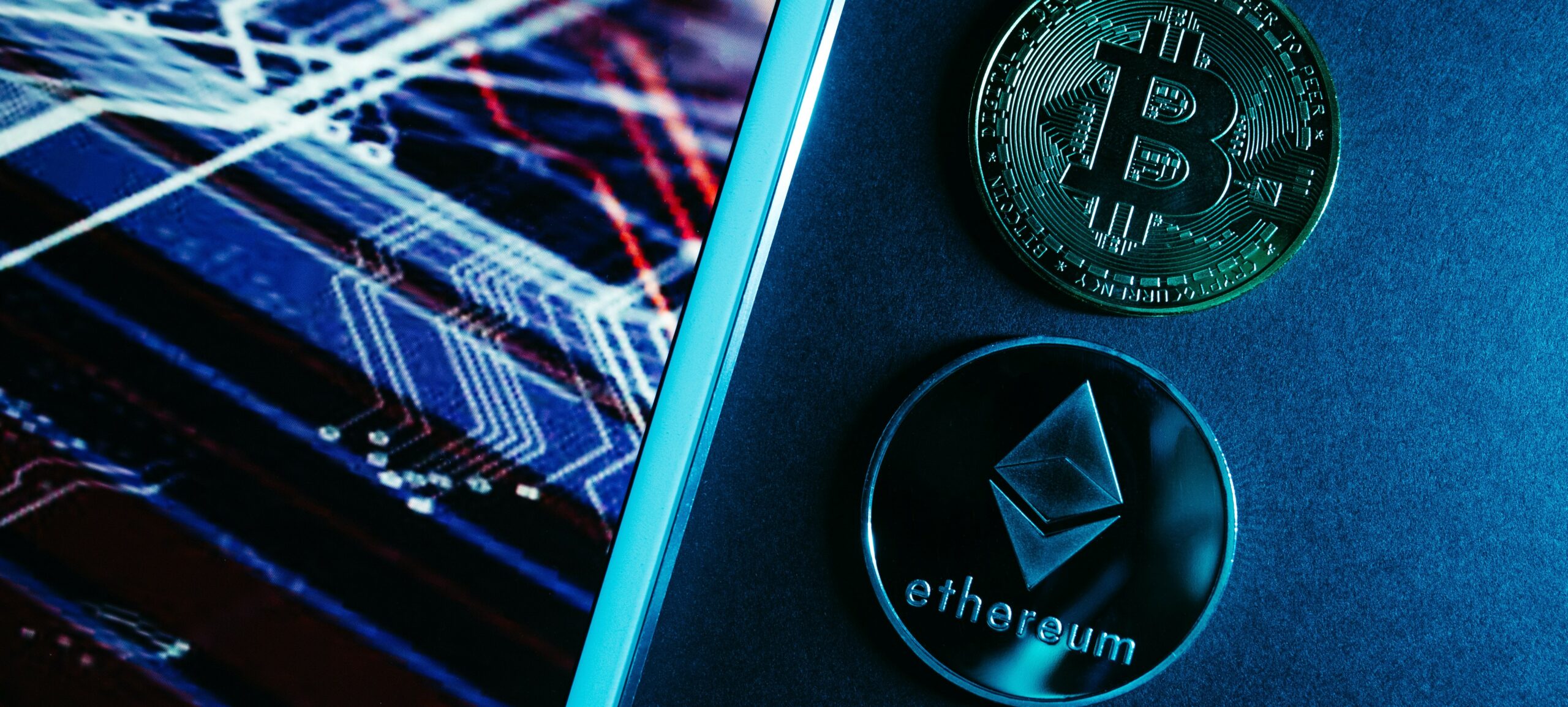The Upsurge of Blockchain Market in Africa
It is obvious that Africa needs technological innovations to jump a generation and catch up with other countries. The continent can indeed turn the lack of infrastructure from a disadvantage into an asset. It offers a blank playground to test and validate new concepts such as mobile payment, which has quickly gained ground, as it remains the major mean of payment for a wide majority of Africans.
With the Internet of Things (IoT) and Artificial Intelligence (AI), low banking rates and booming mobile services, blockchain technology represents a real opportunity for Africa. In fact, beyond crypto-currency (virtual currency not guaranteed by the central bank such as Bitcoin), the blockchain consists of a decentralized and non-falsifiable register, allowing transactions to be validated almost instantly and without a central control unit. Called a trust machine, the blockchain technology will provide the confidence that the continent still lacks today and will contribute to its development by streamlining its financial circuit.
In addition to its “secure” and “transparent” nature, the attractiveness of the blockchain lies in the diversity of its applications, including agriculture, public administration, finance etc. This disruptive technology, which first appeared in 2008 in the aftermath of the global financial crisis, can be used in all areas where a trusted intermediary is required.
Although it is difficult at the moment to assess the long-term effects of the use of blockchain, the paradigm shift that this technology induces will impact many areas. Emerging countries, particularly in Africa, are an exceptional field of exploration. In the next session, we will present some examples of the use of this technology in a number of African countries.
Tunisia:
Since 2017, the Central Bank of Tunisia has been seeking innovative decashing solutions to stem the culture of cash transactions that hinders banking development and promotes illegal trade.
Tunisian institutions became a driving force in the use of blockchain technology. Thus, the National Post office, in collaboration with DigitUS (Tunisian startup specialized in crypto-finance) and Monetas (Swiss software company) offers DigiCash, a virtual portfolio that allows the user to send and receive money, pay bills, etc. This is an example of a successful public private partnership that helped Tunisia become the first country in the world to issue its national currency via an application that operates through blockchain.
Ghana:
In Ghana, until recently, the majority of landowners was unregistered and did not hold property ownership titles. Thanks to Bitland, a startup specializing in blockchain technology, it has become possible to register lands and real property rights and store information in a transparent, public and secure manner.
In the Kumasi metropolitan region of southern Ghana, Bitland registered land titles in a public blockchain for 28 communities. The startup now hopes to expand its project to a national or even continental scale in order to eradicate corruption and unlock billions in fixed capital for infrastructure development.
Kenya:
Headquartered in Nairobi, Kenya, BitHub Africa is a blockchain accelerator company founded in December 2015 to boost the development of blockchain solutions in Africa through providing consulting services to organizations interested in deploying blockchain solutions across Africa and Middle East and hosting training developers for this purpose.
The company aims to play a significant role in helping the country to reach its Vision 2030 goals and become a world leader in adopting the blockchain technology. In fact, BitHub Africa is working with local regulators to foster Kenya’s blockchain-related technology policies and actively promote regulatory policies that are conducive to ICO (Initial Coin Offering) and crypto-currencies.
South Africa:
In South Africa, the Blockchain Academy in Cape Town offers training in crypto-currencies and blockchain technology to local entrepreneurs and startups. Established in 2015, the academy’s main focus is on capacity building in the digital currencies and blockchain technology industry by providing specialized training and consulting services in Africa and Middle East.
Besides, the South African Reserve Bank has chosen to experiment an accounting system based on Ethereum for bank transfers. The principle of the Ethereum blockchain allows decentralized applications to have a database, without a centralized server, which lists all transactions and exchanges in a secure way.
Tanzania:
In 2018, the Tanzanian government had weeded out thousands of “ghost workers” in the public sector through the implementation of the blockchain technology. This audit work has been beneficial to the State allowing the government to achieve substantial savings. In fact, the Tanzanian state lost no less than 430 billion Tanzanian shillings every month in the payment of fictitious wages. This means that the equivalent of 195 million dollars can now be distributed properly, which will undoubtedly have a positive social impact on the country.
Ethiopia:
Ethiopia is the fifth largest coffee producer in the world. 95% of the country’s coffee is produced in small rural farms, which suffer from a lack of organization. This situation increases their vulnerability to pressure from intermediaries who are not always reliable. The lack of traceability does not provide buyers with information on the supply chain of agricultural products. To overcome this lack of organization, the Ethiopian government has signed a memorandum of understanding with the Hong Kong-based blockchain company IOHK. This partnership aims to explore new possibilities for the use of blockchain in the agricultural sector. Thus, all the steps of the process are recorded in an eBook that serves as an online agricultural register where users can trace data on the origin and process of the production.
After presenting some key illustrations of the use of the blockchain technology in different African countries, we will focus in the following on the current situation of the use of blockchain in Morocco before discussing the challenges facing the implementation of blockchain solutions in Africa.
Blockchain in Morocco: Where does the Kingdom stand today?
While Bitcoin was quickly banned in Morocco, the technology behind it (the blockchain) is at the heart of many concerns both in the public and the private sectors. Morocco is indeed at the awareness stage of the great potential of this technology. Aware of the great potential of this technology, Morocco has recently launched an initiative that is led by the National Telecommunications Regulatory Agency (ANRT) through its “Soft Center” R&D unit.
In 2018, ANRT has also set up a think tank on the subject comprising the Soft Centre, the Sayarh and Menjra Cabinet, Numa Casablanca (current “Impact Lab” which is a Moroccan start-up working on improving the start-up ecosystem in Morocco) and Adalia School of Business (Digital Training and Innovation School). The final goal of the reflection is to create a national blockchain, as part of an Open Innovation approach, aiming to facilitate the creation and deployment of fintech services and smart contracts for individuals and startups. For stakeholders, the establishment of this technological infrastructure will foster the emergence of a national IT industry.
In addition to this project, another important initiative is expected to be launched in the Dakhla region in 2019. The project is about the installation of a 900 MW wind farm, equipped with a datacenter for mining to produce clean energy that will be used for running servers for the blockchain. Brookstone Partners, a US private equity fund is behind this initiative with a budget allocation up to $3 billion over a period of 5 years.
Blockchain in Africa: What are the challenges for Blockchain solutions?
Energy consumption:
The most important challenge to the adoption of the blockchain is energy. The mining activity to validate transactions and register them is particularly energy-intensive. For example, the blockchain of the bitcoin would today consume between 300 MW and 10 GW, or more or less the electricity consumption of Ireland (3 GW). The bitcoin blockchain alone would consume 100 times the power used by all of Google’s servers that is difficult to ensure given the energy situation in Africa. In fact, according to the 2018 World Energy Outlook issued by International Energy Agency (IEA), the population without access to electricity remains at 600 million in sub-Saharan Africa, totaling 57% of population with 15 countries in the region having access rates below 25%. Hence, technological developments, particularly those related to blockchain, could overcome this challenge. This is the case for micro-grids, local networks where both residents and companies are consumers and producers of renewable energy.
Technological issue:
In addition to the energy challenge, the blockchain also faces technical challenges. It is about the complexity of this tool and its data processing capacity, which is quite limited. For example, the bitcoin blockchain can process 600,000 to 700,000 transactions per day, far behind the 2000 transactions per second processed by the VISA transaction network. Moreover, some risks are related to the network security and resilience of the system against potential cyber attacks as well as protection of data privacy even though the probability of its occurrence is low given the complexity of the blockchain technology.
Regulation:
Finally, and in order to ensure a better deployment of this technology, African governments must commit themselves to defining a legal and regulatory framework that remains not formalized so far in most of the countries. In this respect, we can mention the experience of Estonia, which has made great progress in this area and remains a very good example from which Africa can draw lessons.
Blockchain technology: Way to achieve “leapfrogging” for Africa
Last but not least, the introduction of blockchain technology is not an epiphenomenon. It is a technology with real transformative potential that is of interest to many African countries. From this point of view, the blockchain can help countries to overcome technological transitions and enable the continent to achieve another “leapfrogging”, similar to what has happened with mobile phones. However, it is necessary to overcome the challenges related to blockchain technology in order to turn it into the driver of the next digital revolution in Africa!
Safae Laghmari – Research Analyst
Sources :
https://newconomy.media/news/africa-adopting-blockchain-to-weed-out-ghost-workers/
https://www.challenge.ma/blockchain-le-maroc-entre-dans-la-course-102794/
https://www.jeuneafrique.com/mag/645909/economie/tunisie-la-blockchain-un-levier-de-croissance/
https://www.afrikatech.com/fr/divers/technologie-blockchain-afrique/
http://blockchainacademy.co.za/
https://cryptoafrica.com/blockchain-has-great-potential-in-the-african-market/
https://www.cryptokemet.com/ghana-bitland-cadastre-blockchain/
https://qz.com/africa/1447621/africa-electrification-rate-slowest-globally/
https://www.ccn.com/bitcoin-100-times-powerful-google
https://medium.com/coinmonks/blockchain-scaling-30c9e1b7db1b
https://maroc-diplomatique.net/numa-casablanca-reprend-sa-marque/
You may also like
Warning: Undefined variable $content in /var/www/sdomains/nexatestwp.com/infomineo.nexatestwp.com/public_html/wp-content/themes/infomineo/single.php on line 235
Warning: Undefined variable $content in /var/www/sdomains/nexatestwp.com/infomineo.nexatestwp.com/public_html/wp-content/themes/infomineo/single.php on line 235
Warning: Undefined variable $content in /var/www/sdomains/nexatestwp.com/infomineo.nexatestwp.com/public_html/wp-content/themes/infomineo/single.php on line 235
Warning: Undefined variable $content in /var/www/sdomains/nexatestwp.com/infomineo.nexatestwp.com/public_html/wp-content/themes/infomineo/single.php on line 235
Warning: Undefined variable $content in /var/www/sdomains/nexatestwp.com/infomineo.nexatestwp.com/public_html/wp-content/themes/infomineo/single.php on line 235
Warning: Undefined variable $content in /var/www/sdomains/nexatestwp.com/infomineo.nexatestwp.com/public_html/wp-content/themes/infomineo/single.php on line 235








